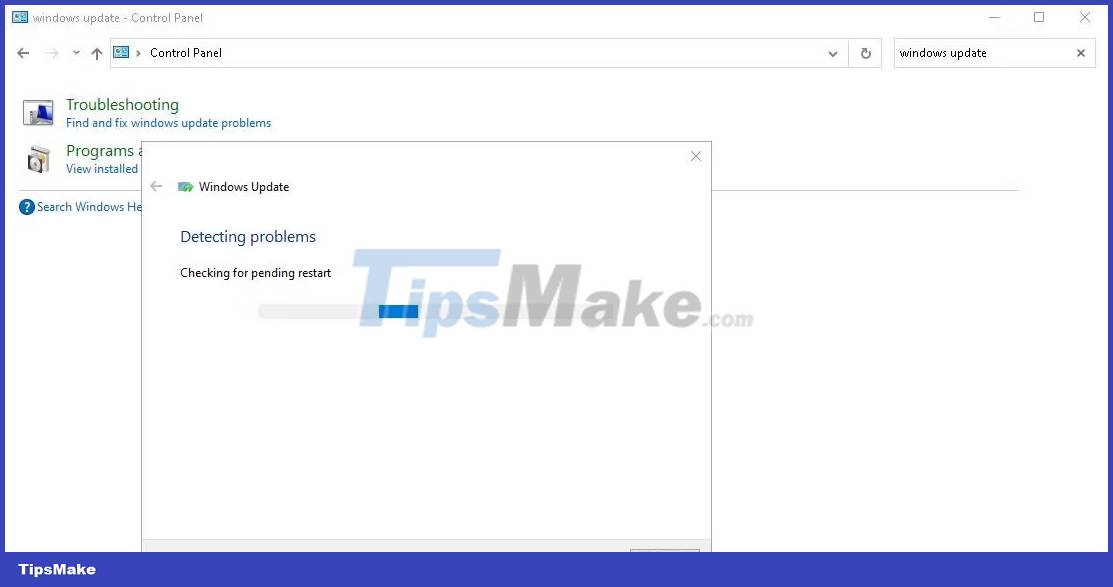How to fix Windows error code 0x80072AF9
One of the many error codes that annoys Windows users is 0x80072AF9. This error code is associated with Windows Update. And it usually happens when you connect your system to the update server.
This article will dive into the intricacies of error 0x80072AF9 and look at some of the best solutions to prevent this problem from recurring.
1. Check Internet Connection
When this error code appears, check your network stability and Internet speed first. If you use a WiFi connection, try switching to a wired or Ethernet connection. You can also try resetting your router for a better connection.
2. Windows Update
Although it sounds paradoxical, with this type of error, a Windows update is often the best way to solve the problem. So, if this error doesn't affect your service update, download and install any pending updates. If your Windows doesn't update automatically, you can try updating Windows manually.
3. Run Windows Update Troubleshooter
Windows Update Troubleshooter helps users to solve problems with their PC. This tool eliminates the need for professional help when problems like error code 0x80072AF9 appear.
To run the Windows Update Troubleshooter, click the Start button and search for the Control Panel application. Open Control Panel and type Windows Update in the search box.
Next, click Find and fix Windows update problems , which will automatically run the troubleshooter.

Alternatively, open the Settings app by pressing Win + I . Select Update and Security > Troubleshoot and run the troubleshooter.
4. Check and update Microsoft Defender
If you encounter this error and the program does not update automatically, you should try updating Windows Defender manually. You can do this through the website or by using PowerShell.
First, open Settings and search for Windows Security . Open Windows Security and click the Settings icon in the bottom left corner of the menu. On the settings page, click the About hyperlink to display information about Microsoft Defender.

Then, search for the latest security information updates for Microsoft Defender on the official website. This page gives you information that you can compare with what you received before. If the versions don't match, proceed with the manual update.
5. Uninstall any external anti-virus software
Third-party antivirus software often includes firewall components and network protection features that can conflict with the Windows update process. These conflicts can disrupt the computer's communication with the server, resulting in error codes.
As a result, uninstalling anti-virus software removes the risk of these conflicts affecting your Windows updates. Usually, you can get rid of it using one of the different ways to uninstall programs on Windows, but some antivirus applications will need a special uninstaller from the developer's website.
6. Run an SFC . scan
Running CMD as admin allows you to resolve many system problems, including error 0x80072AF9. You can use it to run System File Checker (SFC), which helps you check for corrupted system files and attempt to repair them.
If you don't know how to do this, see how to run System File Checker on Windows for complete instructions.
7. Clear cache and junk files
The impact of junk files on computer performance and efficiency is often underestimated. While temporary files are useful, they slow down your PC and use up a lot of storage space.
Therefore, it is best that you regularly clean your computer from all junk files and caches. Fortunately, Microsoft provides tools to help you do this easily.
To get started, open the Run dialog box by pressing Win + R . Then type cleanmgr in the text box and press Enter. This will open another dialog where you have to confirm your operating system by clicking OK.
Then, select Clean up system files to start the cleaning process.
8. Refresh the computer
Refreshing the computer will reinstall Windows while keeping your files and some settings intact. Before starting the process, back up all important data to your device or cloud storage.
Next, open the Windows Start menu and click the power icon. Press and hold the Shift key while clicking Restart to launch the Windows Recovery Environment.
On this page, select Troubleshoot > Reset this PC > Keep my files . This instructs Windows to keep your files and remove all installed applications. Proceed by following the on-screen instructions. You have to choose your language, confirm your settings and wait for the refresh to complete.
Refresh duration depends on the speed of your computer and the amount of data the computer retains. Once the refresh is complete, you can reinstall all previous apps, including the latest version of Microsoft Defender.